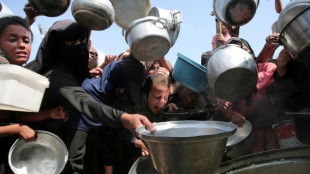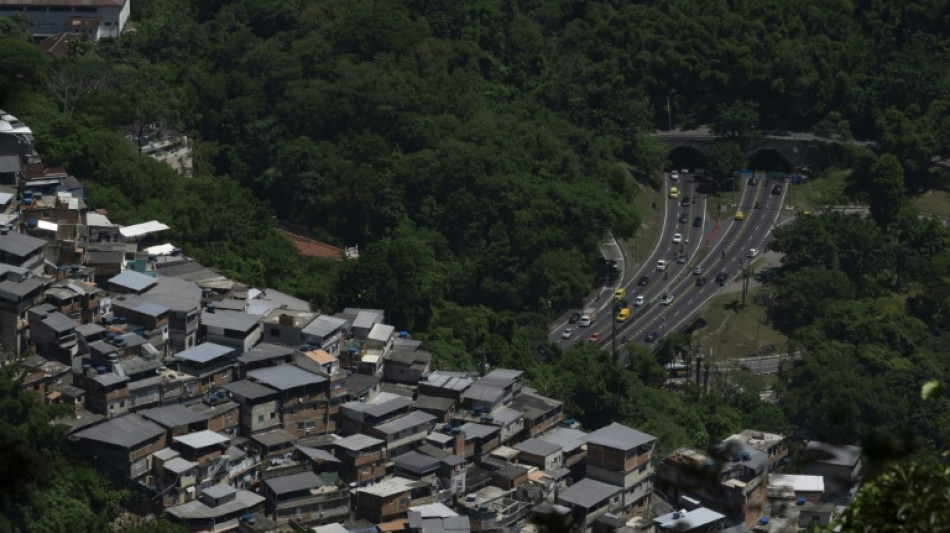
-
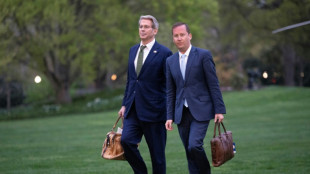 Trump names close political aide as ambassador to India
Trump names close political aide as ambassador to India
-
Fraser-Pryce aiming to end career in 'magnificent way' at Tokyo worlds

-
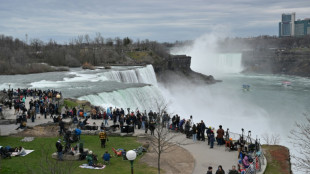 Multiple tourists killed in New York state bus crash
Multiple tourists killed in New York state bus crash
-
Gauff looks to future with bold coaching change before US Open

-
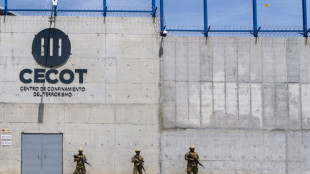 Salvadoran man at center of Trump deportations row freed
Salvadoran man at center of Trump deportations row freed
-
Top-ranked Sabalenka seeks rare US Open repeat

-
 Chelsea thrash West Ham to pile pressure on former boss Potter
Chelsea thrash West Ham to pile pressure on former boss Potter
-
Kane toasts 'instant connection' with Diaz after Bayern romp

-
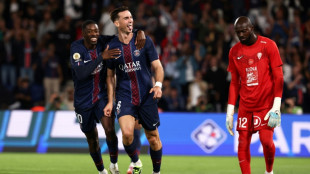 Ruiz goal gives rusty PSG narrow win over Angers in Ligue 1
Ruiz goal gives rusty PSG narrow win over Angers in Ligue 1
-
Salvador man at center of Trump deportations row freed
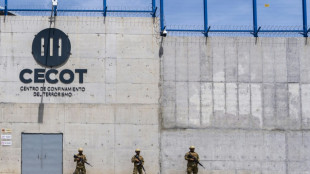
-
 Kane hits hat trick as Bayern thump Leipzig in Bundesliga opener
Kane hits hat trick as Bayern thump Leipzig in Bundesliga opener
-
England begin bid for Women's Rugby World Cup by thrashing United States

-
 Hopes dim for Putin-Zelensky peace summit
Hopes dim for Putin-Zelensky peace summit
-
Sinner in race for fitness with US Open title defense looms

-
 Jefferson-Wooden cements Tokyo sprint favourite status with Brussels win
Jefferson-Wooden cements Tokyo sprint favourite status with Brussels win
-
Dutch foreign minister resigns over Israel sanctions
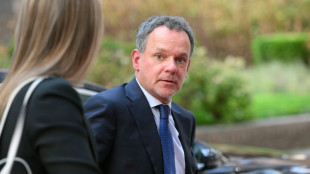
-
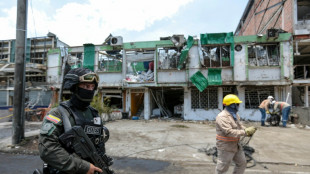 Colombia reels after twin guerrilla attacks kill 19
Colombia reels after twin guerrilla attacks kill 19
-
'Zero doubts' as Jefferson-Wooden scorches to Brussels 100m win

-
 Fleetwood ties Henley for PGA Tour Championship lead
Fleetwood ties Henley for PGA Tour Championship lead
-
Detained Chileans freed two days after football brawl in Argentina

-
 Jefferson-Wooden scorches to Brussels Diamond League 100m win
Jefferson-Wooden scorches to Brussels Diamond League 100m win
-
Trump says 2026 World Cup draw set for December in Washington

-
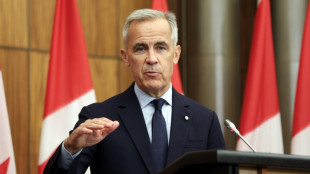 Canada removing tariffs on US goods compliant with free trade deal
Canada removing tariffs on US goods compliant with free trade deal
-
US Fed chair opens door to rate cut as Trump steps up pressure
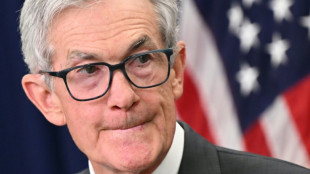
-
 Boko Haram denies Nigerien army claim to have killed leader
Boko Haram denies Nigerien army claim to have killed leader
-
Ukrainian refuses German extradition in Nord Stream sabotage case

-
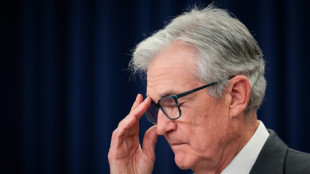 Wall Street rallies, dollar drops as Fed chief fuels rate cut hopes
Wall Street rallies, dollar drops as Fed chief fuels rate cut hopes
-
Spurs boss Frank only wants committed signings after Eze snub

-
 German, French post offices restrict packages to US over tariffs
German, French post offices restrict packages to US over tariffs
-
Australian sprinter Asfoora rebounds to land Nunthorpe Stakes
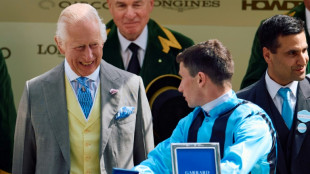
-
 Embattled Bordeaux winemakers see Trump's tariffs as latest blow
Embattled Bordeaux winemakers see Trump's tariffs as latest blow
-
Russia rejects Zelensky meeting as diplomatic tension simmers
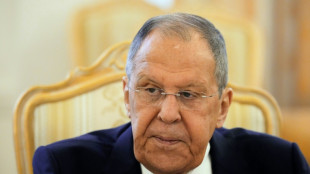
-
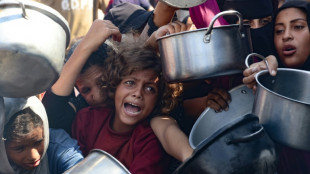 UN declares famine in Gaza, Israel rejects 'lie'
UN declares famine in Gaza, Israel rejects 'lie'
-
FBI raids home of outspoken Trump critic John Bolton
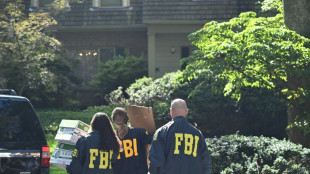
-
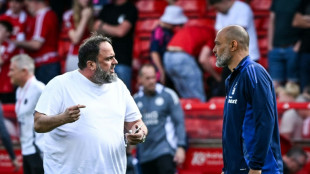 Nuno 'worried' for job over relationship with Forest owner
Nuno 'worried' for job over relationship with Forest owner
-
Iran, Europeans to meet as snapback sanctions loom
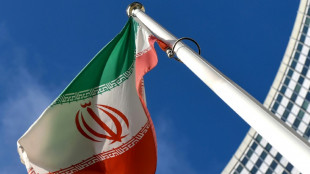
-
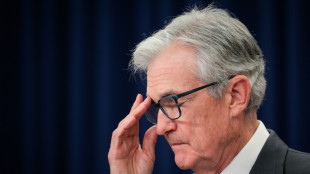 Wall Street rallies as Fed chief fuels rate cut hopes
Wall Street rallies as Fed chief fuels rate cut hopes
-
Eze move a sign of Arsenal's 'ambition', says Arteta

-
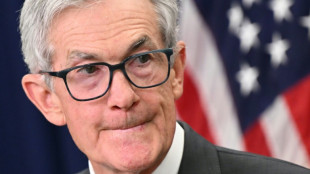 US Fed chair leaves door open to rate cut, facing down Trump pressure
US Fed chair leaves door open to rate cut, facing down Trump pressure
-
Spain's deadly wildfires ignite political blame game
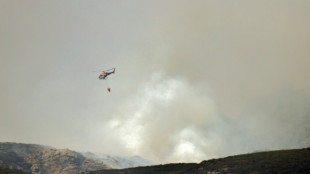
-
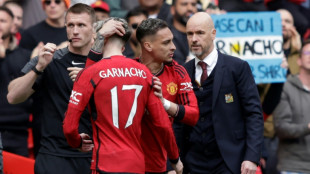 Man Utd outcasts could return, says Amorim
Man Utd outcasts could return, says Amorim
-
Rabiot-Rowe altercation a 'bar fight', says De Zerbi
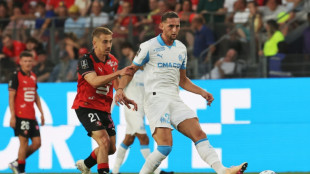
-
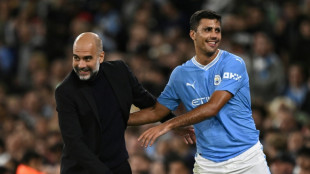 Fit-again Rodri still 'best in the world' for Guardiola
Fit-again Rodri still 'best in the world' for Guardiola
-
TikTok's UK content moderation jobs at risk in AI shift
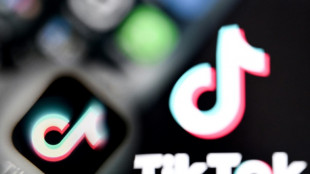
-
 NATO chief calls for 'robust security guarantees' on Ukraine visit
NATO chief calls for 'robust security guarantees' on Ukraine visit
-
Bayeux Tapestry not too fragile to move to UK, French official says
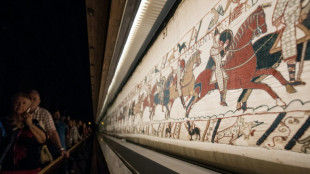
-
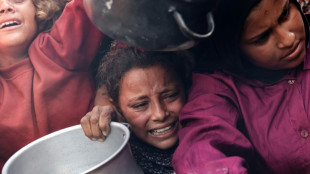 UN declares famine in Gaza
UN declares famine in Gaza
-
Newcastle can't win in Isak stand-off, says Howe

-
 Doubts over Niger claim that a Boko Haram leader killed
Doubts over Niger claim that a Boko Haram leader killed
-
Teenager Wanner signs with Eindhoven from Bayern


In Rio de Janeiro, a wrong turn leads from paradise to peril
One victim was visiting Rio de Janeiro's iconic Christ the Redeemer statue. Another hopped into an Uber for a night out in the seaside city.
Both ended up shot dead after GPS navigation apps suddenly diverted them into favelas dominated by drug-trafficking gangs locked in an intense battle for territory.
Most of the millions of tourists who visit Rio every year enjoy its world-famous carnival, beaches, and nightlife without coming close to the gang wars that thrum beneath the surface.
However, recent shootings by jittery men with rifles stationed at the entrances to these urban settlements have cast a fresh spotlight on Rio's security challenges.
In December, an Argentine tourist returning from the Christ statue with his wife and children followed his GPS into a favela. He was shot twice and later died in hospital.
Two weeks later, a Brazilian woman from Sao Paulo was shot in the neck and died after her Uber driver made a wrong turn while taking her to a party.
In mid-January, a dashcam video went viral of another Uber driver begging rifle-toting men for mercy after being diverted into the Cidade Alta favela with his terrified passenger in the backseat.
"The guys there are afraid it is police or rival gangs," said Brazilian-American lawyer Victor Sarto, 41, who received a scolding at gunpoint when he and a group of friends ended up in a favela after a visit to the Christ statue in 2019.
- 'Scenery changes fast' -
The Fogo Cruzado watchdog said 19 people were shot, five fatally, after incidents in which civilians and police officers accidentally entered favelas in 2024 -- the highest number since it began tracking such incidents in 2016.
"This obviously has to do with the geography of Rio de Janeiro. And it has to do with the problem of territorial control of Rio de Janeiro, without a shadow of a doubt," said the institute's data director, Maria Isabel Couto.
Rio's favelas -- home to around 1.5 million people -- cling to the steep hills that dramatically frame the city.
Others are wedged in between condominiums or alongside major highways.
"The scenery changes fast," Rio's state security secretary Victor dos Santos told AFP.
"So when someone enters a place like this very quickly, the criminal who is there, alert, waiting for an adversary, ends up shooting first and only checking later to see who it is."
Uber said in a statement to AFP that its safety technology "may block trip requests from areas with public safety challenges at specific times and on certain days."
A spokesman for Google -- which owns two popular navigation apps -- said the company would not comment on the reported problem of maps diverting users into dangerous areas.
- 'There are rules' -
Rio has at least four criminal factions vying for territorial power and 20 percent of the metropolitan region is under control of these groups, said Couto.
A longtime resident of Cidade Alta -- where five people were shot and injured after accidentally entering the favela in 2024 -- told AFP "there are rules" that locals know when driving in.
These include driving at most "20km (12 miles) per hour.... You have to have the windows open, with the headlights on and a hazard light flashing," he said, asking not to be named for his safety.
Couto rejected the idea of "no-go zones" in the city's favelas, where both poor and middle-class people reside and already battle shoddy transportation links.
Rights groups say favela residents also suffer an outsized impact from regular police operations which shut down schools and businesses and barely make a dent against the gangs.
Brazil's Supreme Court is currently weighing whether to maintain five-year-old rules limiting police operations in favelas to reduce the high rate of deaths of residents.
- 'A resort for criminals' -
But the stricter measures have been criticized by authorities.
Rio de Janeiro Mayor Eduardo Paes said the measures gave the impression that the city had become "a resort for criminals," with gangs and militia expanding territorial control and restricting the free circulation of people in some areas.
On Wednesday a shootout during a police operation near Cidade Alta led to a common sight: residents of Rio leaving their cars on a major highway to hunker down alongside a central barrier as bullets flew.
Local media reported a police helicopter had to make an emergency landing after being hit by gunfire.
The security secretary Santos said that the increase of people getting shot as they accidentally enter favelas came as conflict between Rio's armed groups turned "very intense" in 2024.
He said criminal factions were no longer just selling drugs but seizing control of valuable services to favelas like internet, water, electricity and transport.
"Today, territory is synonymous with revenue."
W.Huber--VB

